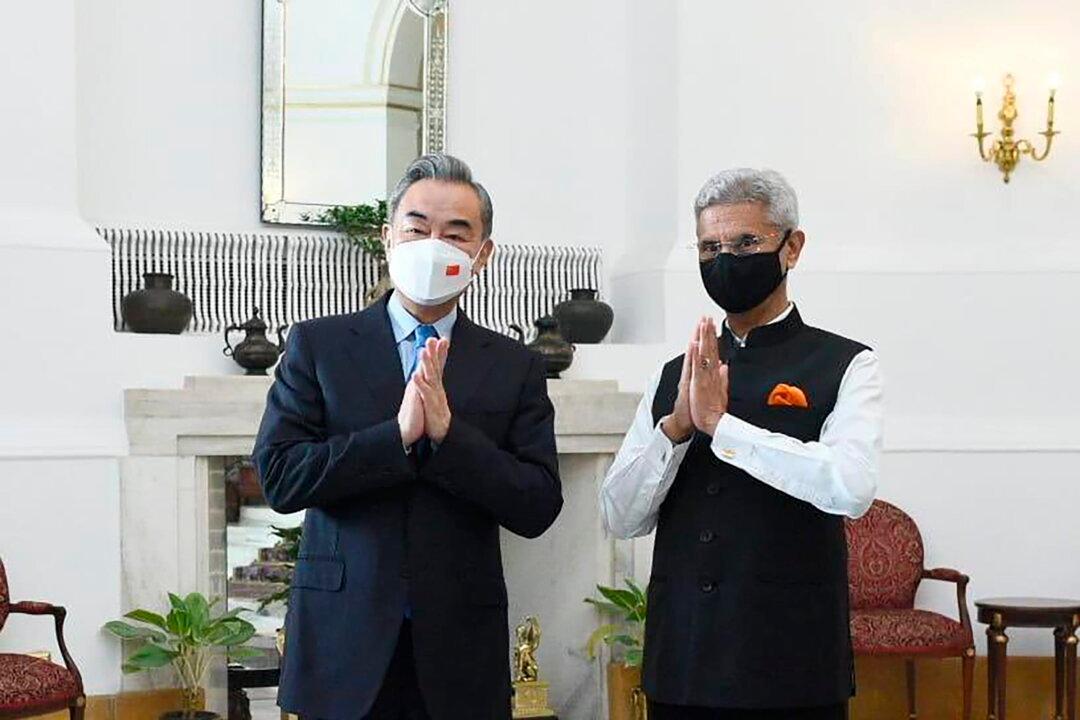NEW DELHI—Chinese Foreign Minister Wang Yi landed in India on March 24, just a few days after a serious diplomatic war of words between the two countries over Kashmir and after the failure of the 15th round of military talks earlier this month.
Wang’s visit is the highest-level visit between the two countries after a bloody border conflict in 2020. He held talks with India’s national security advisor Ajit Doval and Foreign Minister Subrahmanyam Jaishankar on Friday.





